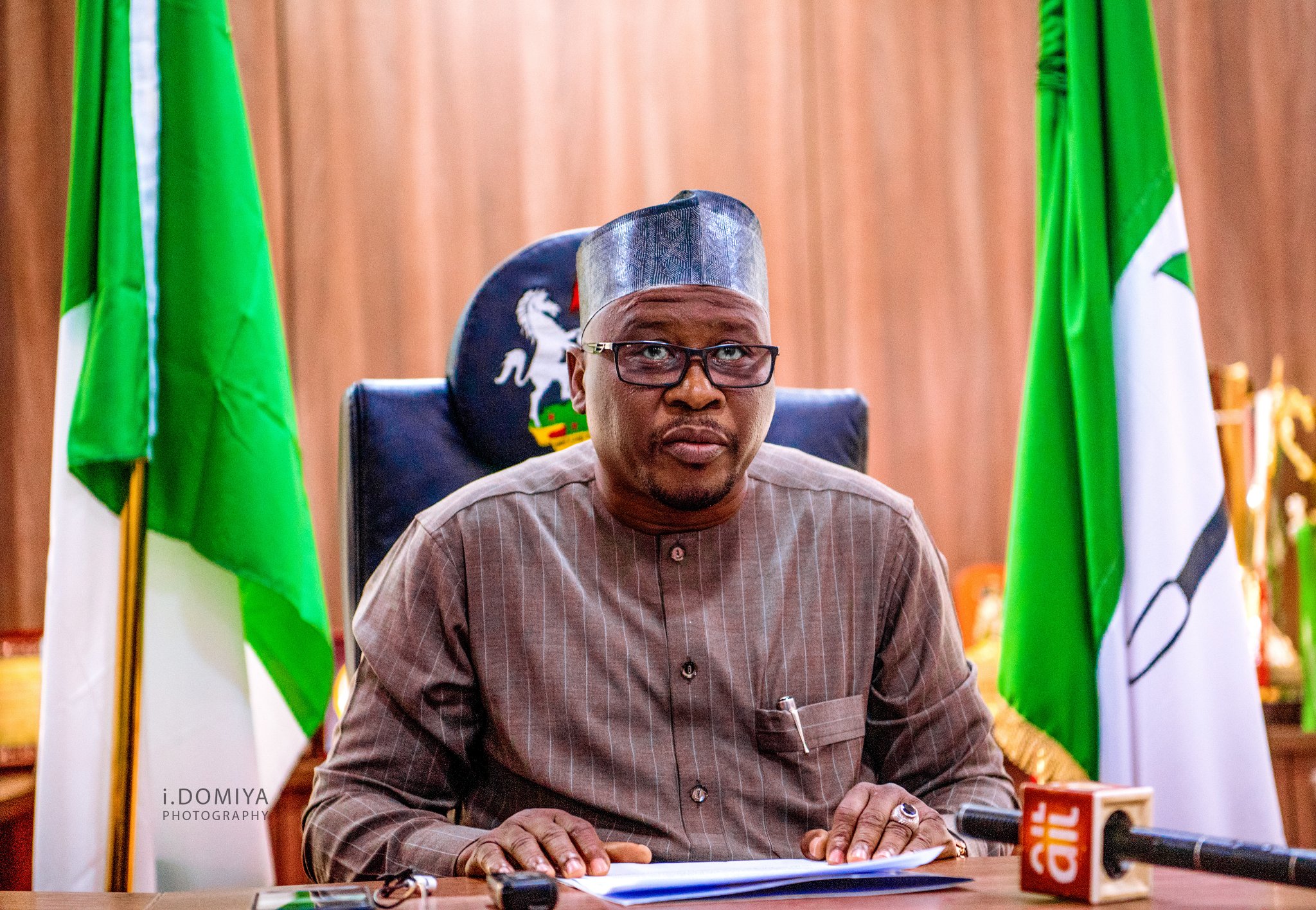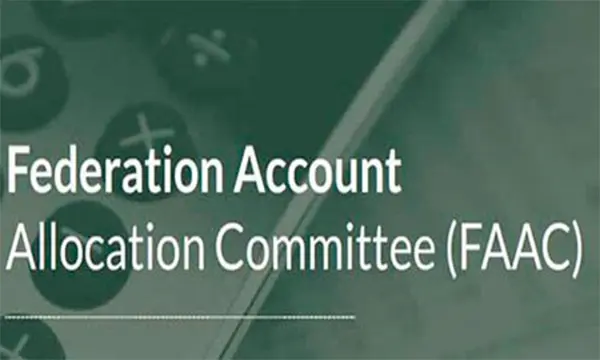Agriculture
Nigerian Government, NSPRI train ADP staff on management of post-harvest losses

The Federal Government in partnership with Nigerian Stored Products Research Institute (NSPRI) has begun training of Agricultural Development Project (ADP) staff in the South East and South-South zones of the country.
The News Agency of Nigeria (NAN) reports that the four-day training programme, which began on Wednesday in Sapele, aimed to equip farmers with requisite knowledge on how to manage post-harvest losses in the region.
In her opening remarks, the Executive Director, NSPRI, Dr Patricia Pessu, said that the training programme was aimed at stepping down knowledge on post-harvest management, through the ADP staff, to rural farmers.
Pessu said that post-harvest losses had a significant effect on the economy.
“The institute would be taking advantage of the platform to disseminate information and share experiences as well as achievements on post-harvest management to reduce post-harvest losses,” she said.
She said that about 30 per cent of grains, such as maize, sorghum, millet, cowpea, root and tuber crops such as yam, cassava and potatoes were lost post-harvest in the country.
“About 50 of fruits and vegetables produced in Nigeria are also lost post-harvest. Unfortunately, these losses are in the rural areas, that are in dire need of development.”
She described the ADP officials as partners and stakeholders in the agricultural sector, who had over the years ”helped to improve the livelihoods of the farmers by helping to provide them with inputs such as fertilizers and seedlings.
“As we know, post-harvest has not been at the forefront of their roles and we, having the mandate to research post-harvest losses, decided as part of our 2021 project to get the ADPs on board, realising their importance at the grassroots”.
“So, we can bring them on board to put them through all the available technologies in the industry realising that as they are close to the grassroots, they will be able to impact on the farmers and to eventually improve their livelihoods and then improve the economy,” Pessu said.
The NSPRI boss assured me that the partnership would continue even after the training programme.
She said that the institute intended to have some of the technologies in some places that would be identified by the ADPs, where the farmers would access the facilities and use them free of charge.
In his remarks, the Delta State Coordinator, Federal Ministry of Agriculture and Rural Development (FMARD), Mr John Onovughe, said that the training would enable ADP staff to orientate farmers on how to preserve their produce.
“The training is commendable, as it will be nice if we can get it right this time around; post-harvest storage will boost the Nigerian economy.
”Technology innovation of the post-harvest training will enhance the living conditions of the farmers”, he said.
Earlier, the state Commissioner for Agriculture and Natural Resources, Chief Julius Egbedi, represented by Mr Edwin Odiete, Programme Manager in the ministry, said farmers who were responsible for feeding the nation lacked the facilities to store their produce after harvest.
He added that the training would equip farmers with the requisite knowledge and new methods of preserving their crops.
Egbedi also said that the knowledge imparted in the course of the training would be extended to farmers on how best to preserve their produce, especially those in the rural areas.
One of the trainees, Mr Godwin Eze thanked the Ministry and NSPRI for the workshop, assuring that whatever they were taught would be extended to the farmers, to help reduce post-harvest losses in the country. (NAN)
Agriculture
Fintiri Unleashes N2bn Boost for Farmers as Adamawa Rolls Out 2025 Agricultural Support Programme

The Adamawa State Government has launched the 2025 Agricultural Support Programme aimed at empowering smallholder farmers and enhancing food security across the state.
Commissioner for Agriculture, Prof. David Jatau, disclosed this on Friday while briefing journalists in Yola. He revealed that Governor Ahmadu Umaru Fintiri had approved a substantial N2 billion for the initiative, which targets increased agricultural productivity in the upcoming farming season.
According to Jatau, the programme—which is already underway—will provide subsidised agricultural inputs such as fertilisers, improved seeds, and other essential materials to farmers in six local government areas.
“The programme has already commenced in six LGAs—Madagali, Michika, Hong, Maiha, Demsa, and Ganye,” he said. “By next year, during the rainy season, we will extend the programme to the remaining LGAs.”
He explained that 300 hectares of farmland would be cultivated in each of the participating local governments, with 300 farmers benefitting per council.
To ensure fairness and transparency, Jatau said a multi-stakeholder committee had been constituted to oversee the beneficiary selection process. The committee comprises representatives of traditional councils, local government authorities, security agencies, youth groups, and women organisations.
“We are also equipping extension workers with training to offer farmers guidance on modern agricultural techniques for improved yield,” he added.
The commissioner noted that the intervention would not only increase food production but also generate employment, improve rural incomes, and contribute to economic stability in farming communities.
Jatau also revealed that the state government is collaborating with non-governmental organisations and agricultural development bodies, with over 2,700 hectares of farmland pledged by development partners for cultivation.
He reaffirmed the Fintiri administration’s commitment to achieving food self-sufficiency and urged beneficiaries to make the most of the programme.
Agriculture
KWASU Microfinance Bank disburses loan to farmers

The Kwara State University (KWASU) Microfinance Bank has provided loan facilities to farmer groups in and around Malete, Moro Local Government Area.
The Vice-Chancellor and Chairman of the Board of Trustees, KWASU Microfinance Bank, Prof. Jimoh Shaykh-Luqman, announced this while presenting offer letters to the farmers’ associations at a formal event held on the university campus.
Addressing the farmers, the Vice-Chancellor, represented by the Deputy Vice-Chancellor (Administration), Prof. Moshood Jimba, said the agricultural loan scheme aimed to support farmers in boosting food production and enhancing food sustainability.
“The loan is meant to support your farm operations, especially in the upcoming planting season,” he said.
Prof. Shaykh-Luqman reaffirmed KWASU’s commitment to its mantra of being a “University for Community Development,” leveraging its expertise and resources to initiate programmes that drive local development.
The Managing Director and Chief Executive Officer of KWASU Microfinance Bank, Alhaji Hakeem Hassan, noted that the agricultural loan scheme was piloted last year with 15 farmers as beneficiaries.
He added that the pilot scheme yielded positive results for both the farmers and the bank, as all beneficiaries successfully repaid their loans.
Following this success, he said, the scheme had been expanded to include more farmers under various farmers’ associations.
The News Agency of Nigeria (NAN) reports that the associations benefiting from the agricultural loan scheme include Alanu Agbelere Farmers Group, Agbedola Ketere Group, and Itesiwaju Agbe Group Omoni.
Others are Agbeloba Farmers Association (Malete Market), Agbeyewa Elemere Farmers Group, Agbe Olofeere Group, and Agbeloga Malete Farmers Group.
Speaking on behalf of the farmers, the Chairman of Agbeloba Farmers Association (Malete Market), Alhaji Mohammed Abdulrazaq, expressed gratitude to the university and the bank for their trust.
He pledged, on behalf of the beneficiaries, to utilise the loans effectively and ensure prompt repayment.
Agriculture
Kano Govt. implements N2.3bn livestock empowerment programme

The Kano State Government has begun implementing the second phase of its livestock empowerment programme valued at N2.3bn under the Kano State Agro-Pastoral Development Project (KSADP).
The Commissioner for Agriculture and Natural Resources, Dr Mamood Danjuma, disclosed this while addressing newsmen on Thursday in Kano.
Danjuma said the initiative aims to support beneficiaries with livestock, feeds, drugs, and salt lick to enhance their economic well-being.
According to him, 911 beneficiaries are being supported with two rams each, feed for three months, drugs and salt lick, while 2,386 women are being supported with two goats and a buck goat in the poorest households in the state.
He explained that the total package under the empowerment programme showed that 1,342 bulls were procured by the government at the cost of N560m, 1,822 rams were procured at the cost of N175m and 7,158 goats bought at the cost of N451m.
“Under the cattle scheme, each cattle gains 100kg over a period of 120 days. The fattening period is for 120 days, making three cycles possible in a year.
“As for the small ruminants fattening scheme, with the same 120-day fattening period yielding an extra 15kg/animal.
“The project promotes goats’ reproduction through women who will take care of the animals and sell the young ones to improve their income and standard of living,” he said.
He said that the programme promotes economic empowerment, particularly among women, by providing them with livestock to care for and sell, ultimately improving their income and standard of living.
-

 Headlines4 years ago
Headlines4 years agoFacebook, Instagram Temporarily Allow Posts on Ukraine War Calling for Violence Against Invading Russians or Putin’s Death
-

 Headlines4 years ago
Headlines4 years agoNigeria, Other West African Countries Facing Worst Food Crisis in 10 Years, Aid Groups Say
-

 Foreign4 years ago
Foreign4 years agoNew York Consulate installs machines for 10-year passport
-

 News1 year ago
News1 year agoZero Trust Architecture in a Remote World: Securing the New Normal
-

 Entertainment3 years ago
Entertainment3 years agoPhyna emerges winner of Big Brother Naija Season 7
-

 Headlines2 years ago
Headlines2 years agoNigeria Customs modernisation project to check extortion of traders
-

 Entertainment2 years ago
Entertainment2 years agoMovie download platform, Netnaija, announces closure
-

 Economy2 years ago
Economy2 years agoWe generated N30.2 bn revenue in three months – Kano NCS Comptroller














